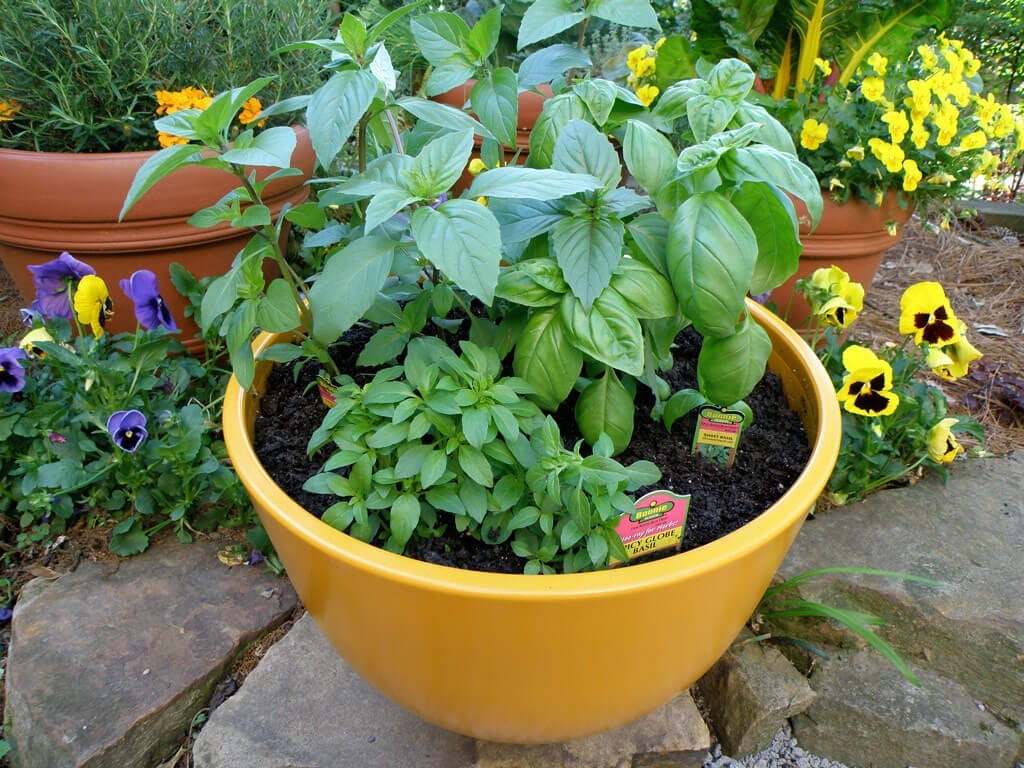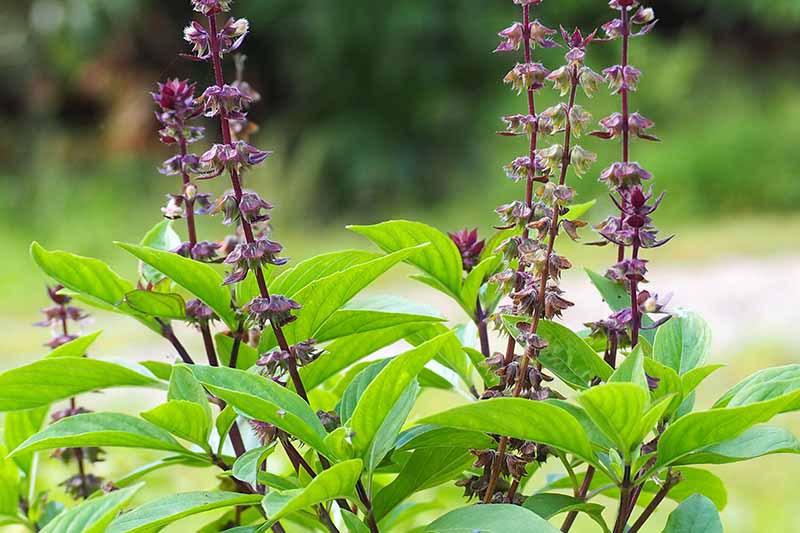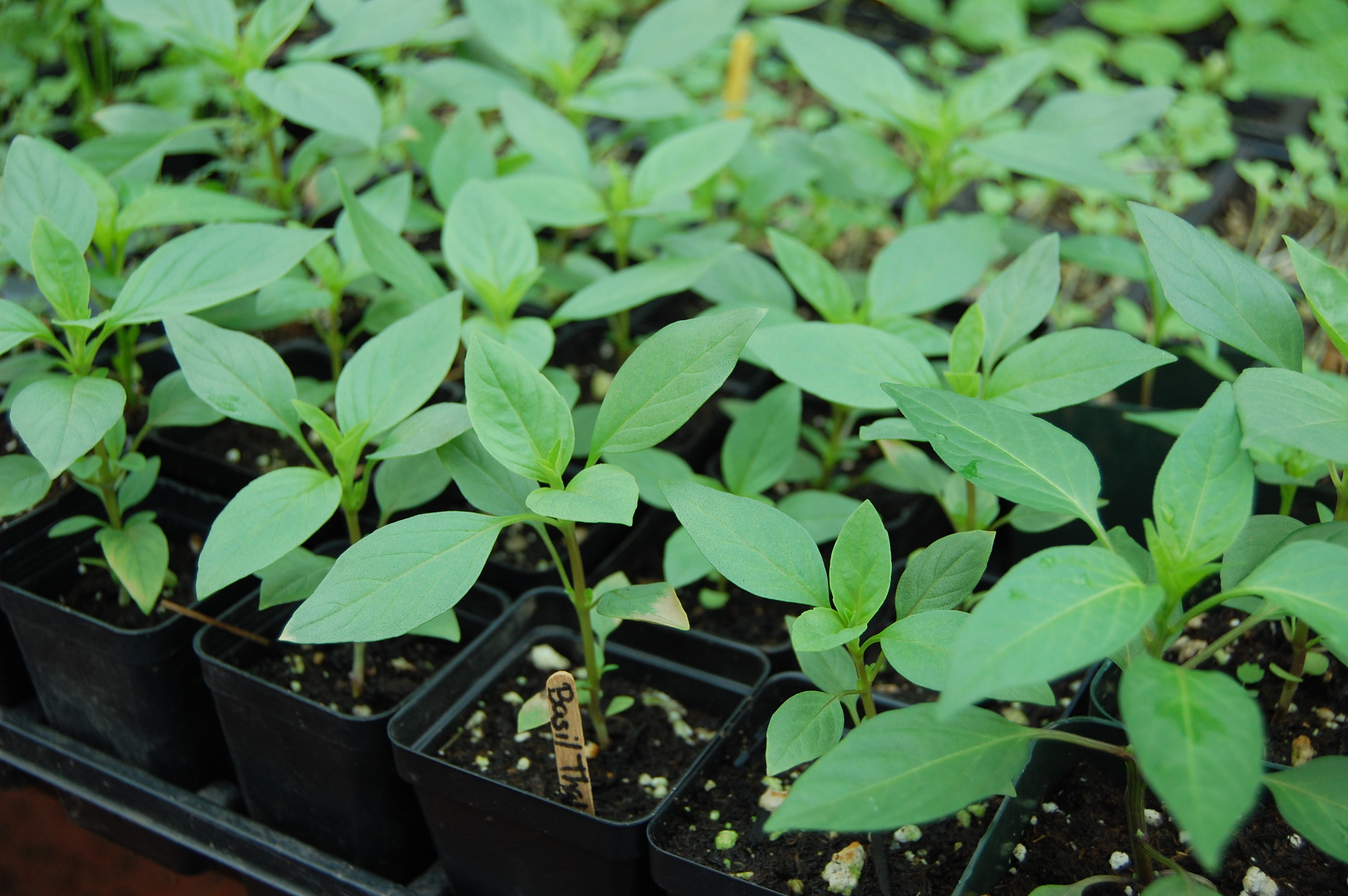
×

Thai basil, with its delightful aroma and distinctive flavor, it is favourite herb in many culinary dishes. The good news is that you don’t need a vast garden to enjoy this herb year round. In this beginner’s guide, we’ll explore that art of growing Thai basil indoors, so you can have a fresh supply of this fragrant herb right in your kitchen.
Growing Thai basil indoors is a rewarding experience, and it doesn’t require a green thumb.
Select a pot or container that's at least 6-8 inches deep with drainage holes.
Use a good quality potting mix that provides proper aeration and drainage. You can mix in some perlite or sand for added drainage.
Thai basil loves sunlight. Place your pot near a sunny windowsill where it can receive at least 6-7 hours of sunlight each day.
Maintain a constant moisture level in the soil that isn’t flooded. The soil should be watered when the top inch feels dry. To avoid fungus problems, avoid wetting the leaves.
Regularly pinch back the tips of your Thai basil plant to encourage bushier growth. As needed, remove leaves but don’t remove more than one-third of plant at once.

Thai Basil is a popular herb in southeast Asian cuisine, known for its unique flavor and aroma. It is also relatively easy to grow indoors, making it a great option for home gardeners. Here are five easy ways to grow Thai Basil indoors :
This is the most common way to grow Thai Basil indoors. Simply sow the seeds in a well draining potting mix and keep them moist.
This is a faster way to grow Thai Basil indoors than from seed. Simply take a 4-6 inch cutting from a mature Thai Basil plants and place it in a glass of water. The roots should develop within 1-2 weeks. Once the roots are at least 2 inches long, transplant the cutting into a Pot with well draining potting mix.
Thai Basil can also be grown hydroponically, which is a method of growing plants without soil. To grow Thai Basil hydroponically, you will need a hydroponic system to grow Thai Basil.
Aeroponics is another method of growing plants without soil. In aeroponics, the roots of the plants are suspended in the air and misted with nutrients solution. To grow Thai Basil aeroponically, you will need an aeroponic system. Follow the instructions that comes with your aeroponic system to grow Thai Basil.
Aquaponics is a system that combines aquaculture (raising fish) with hydroponics (growing plants without soil) . In aquaponics, the fish waste provides nutrients for plants, and the plants help to filter the water for the fish . To grow Thai Basil aquaponically, you will need an aquaponics system. Follow the instructions that come with with your aquaponics system yo grow Thai Basil.

The best time to start thai basil growing indoors is during the late spring or early summer when outdoor temperatures are consistently warm. However , since you’re growing it indoors, you can start at any time of the year.
Growing Thai basil indoors offers several advantages :
There are many benefits to thai basil grow indoors. First, thai basil growing indoors allows you to have fresh Thai Basil year-round.
Second , growing Thai Basil indoors is a great way to save money on groceries. Third, thai basil growing indoors is a fun and rewarding hobby.
Growing Thai Basil from seeds can be a rewarding experience.
Purchase high-quality Thai Basil seeds from a reputable source.
Fill a seed tray or small pots with potting mix. Plant the seeds about ¼ inch deep and cover lightly with soil.
Place the tray or pot in a warm location with indirect sunlight. Keep the soil consistently moist. Seeds typically germinate in 5-10 days.
Once the seedlings have two sets of true leaves, transplant them into larger pot or containers with well draining soil.
Follow the care tips mentioned earlier for mature Thai Basil plants.
Thai Basil seeds are very small, so it is important to be careful when planting them. Be sure to plant the seeds in well draining potting mix and keep them moist.

Read Also: The Impact of Cottage Style Gardening on Your Garden
Yes, you can grow other types of Basil indoors using the same methods described above. Some popular types of Basil to grow indoor include sweet Basil, lemon Basil, and cinnamon Basil.
Genovese Basil, sweet Basil and holy Basil are popular choices. Each type has its unique flavor and culinary uses, so feel free to experiment and cultivate your Basil gardens indoors.
Thai basil grow indoors is a great way to have fresh thai basil year round, save money on groceries, and enjoy a fun rewarding hobby.
With proper care and attention to sunlight, water and pruning, you can enjoy the flavors of Thai cuisine in your kitchen .
So get started on your indoors Thai Basil garden and elevate your culinary adventure!
BY :- ANANYA SAXENA
.